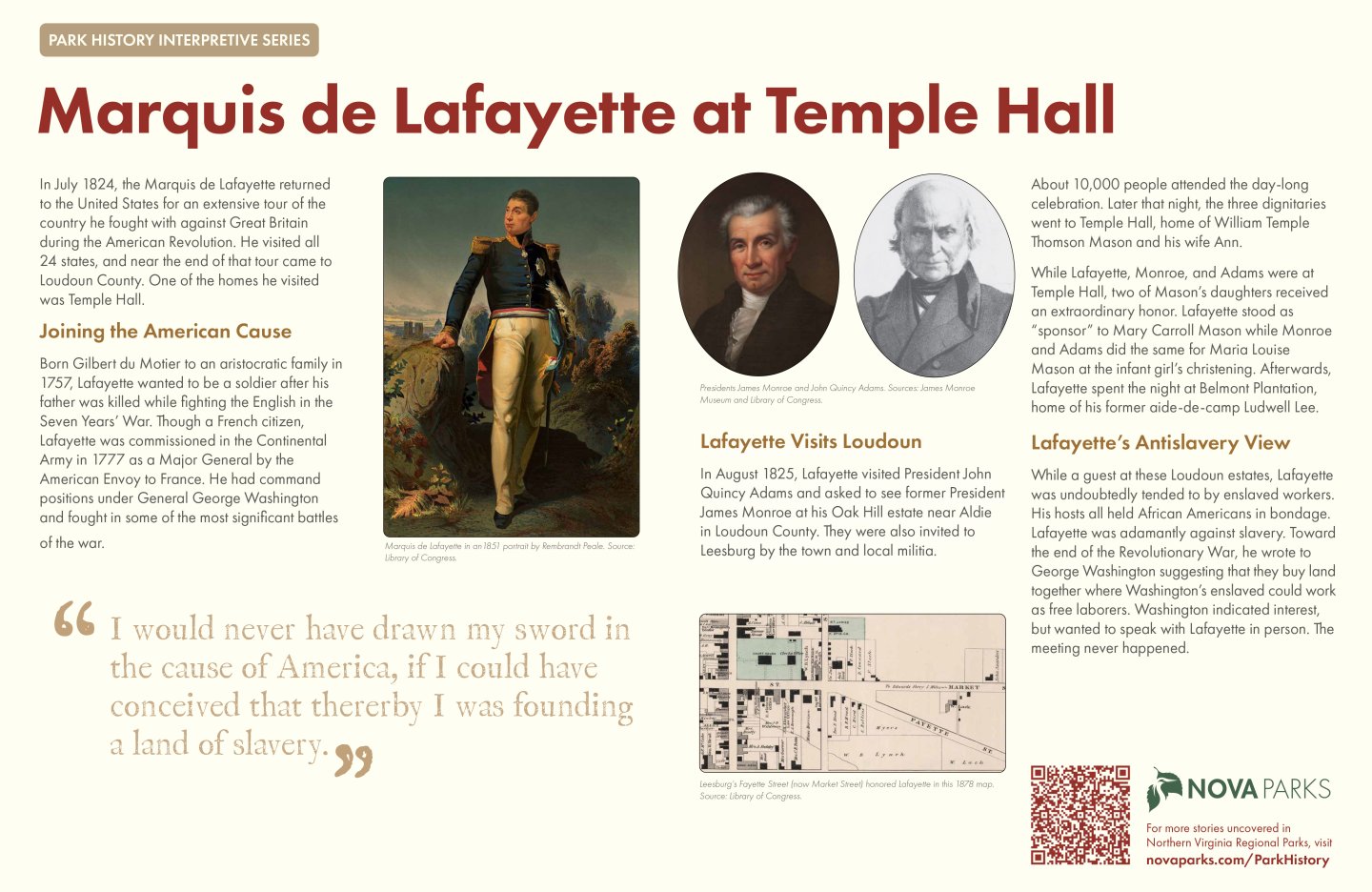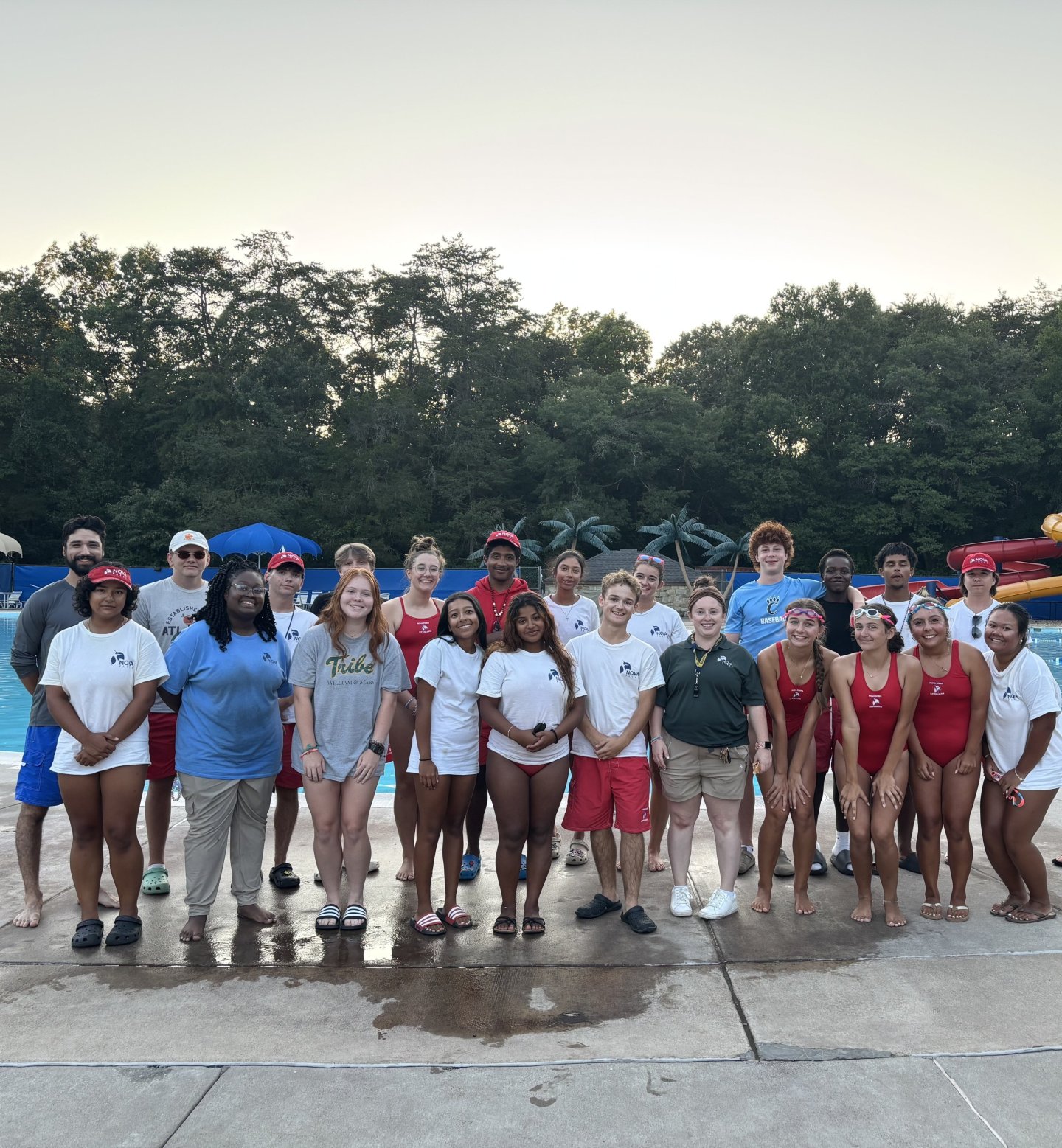Temple Hall Farm Regional Park
Park History Interpretive Series: Marquis de Lafayette at Temple Hall

In July 1824, the Marquis de Lafayette returned to the United States for an extensive tour of the country he fought with against Great Britain during the American Revolution. He visited all 24 states, and near the end of that tour came to Loudoun County. One of the homes he visited was Temple Hall.
Joining the American Cause
Born Gilbert du Motier to an aristocratic family in 1757, Lafayette wanted to be a soldier after his father was killed while fighting the English in the Seven Years’ War. Though a French citizen, Lafayette was commissioned in the Continental Army in 1777 as a Major General by the American Envoy to France. He had command positions under General George Washington and fought in some of the most significant battles of the war.
Lafayette Visits Loudoun
In August 1825, Lafayette visited President John Quincy Adams and asked to see former President James Monroe at his Oak Hill estate near Aldie in Loudoun County. They were also invited to Leesburg by the town and local militia.
About 10,000 people attended the day-long celebration. Later that night, the three dignitaries went to Temple Hall, home of William Temple Thomson Mason and his wife Ann.
While Lafayette, Monroe, and Adams were at Temple Hall, two of Mason’s daughters received an extraordinary honor. Lafayette stood as “sponsor” to Mary Carroll Mason while Monroe and Adams did the same for Maria Louise Mason at the infant girl’s christening. Afterwards, Lafayette spent the night at Belmont Plantation, home of his former aide-de-camp Ludwell Lee.
Lafayette’s Antislavery View
While a guest at these Loudoun estates, Lafayette was undoubtedly tended to by enslaved workers. His hosts all held African Americans in bondage. Lafayette was adamantly against slavery. Toward the end of the Revolutionary War, he wrote to George Washington suggesting that they buy land together where Washington’s enslaved could work as free laborers. Washington indicated interest, but wanted to speak with Lafayette in person. The meeting never happened.


